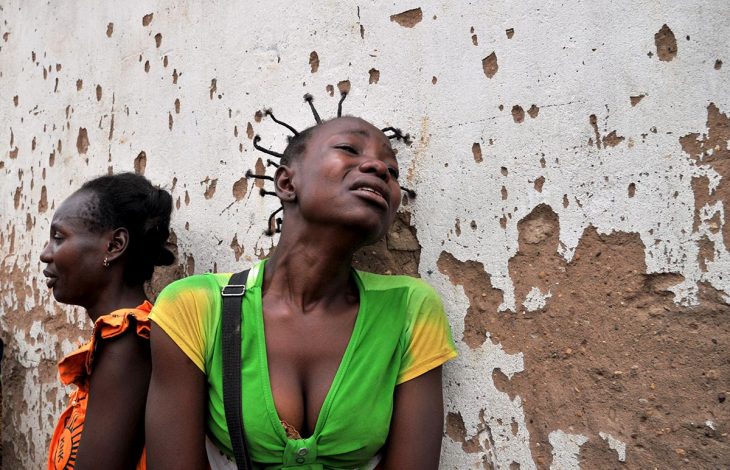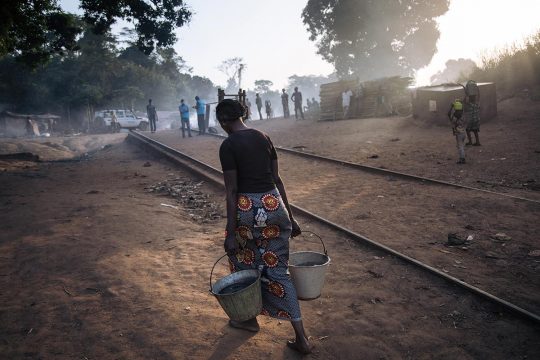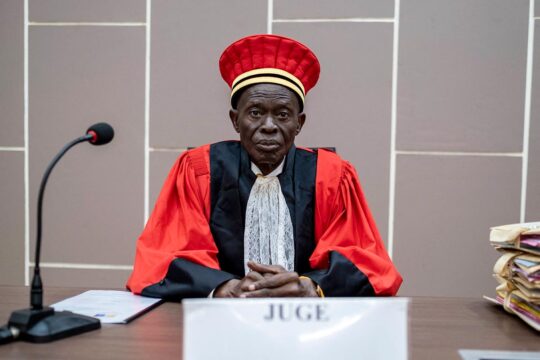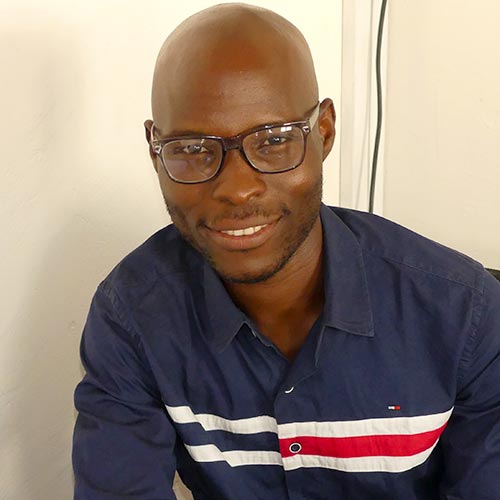The first annual report of the Truth, Justice, Reparation and Reconciliation Commission (TJRRC), officially inaugurated in July 2021, lists as its main activities "meetings with the government authorities, training of commissioners, travel, sharing of experiences, recruitment of certain experts, and awareness-raising on the roles and responsibilities of the Commission". The TJRRC was created in 2020 in parallel with the Special Criminal Court (SCC), a hybrid court composed of national and international judges charged with trying serious crimes committed in the Central African Republic since 2003. Among other things, the Commission is expected to establish the truth, restore the dignity of victims, and facilitate national reconciliation. But one year and seven months after its 11 commissioners were sworn in, it is struggling to get off the ground and carry out its mission.
"This is not what’s expected of them," cries Evrard Bondadé, secretary general of the NGO Central African Human Rights Observatory. "Seminars, immersion trips to Rwanda, South Africa! We want instead to see the commissioners go on the ground, hear the victims and perpetrators, and propose reparations. There is no key message, the Commission is floundering.”
Lack of resources
Bondadé is aware of the difficulties the Truth Commission faces. "The TJRRC does not have technical and financial partners. There are no donors, including the government. If there are no financial means, it is normal that things are dragging. This is why the Commission is struggling to make its mark," he says.
The Commission's report also mentions its financial difficulty, but does not give any figures. There is no budget, no line on expenditures to date, and no projections. In its recommendations, the TJRRC calls for "the allocation of a substantial budget", but it does not give an estimate. Last year, it was allocated a lump sum of 200 million CFA francs (about 300,000 euros). How much does it think it will need for the current year? "Between 900 million and 1 billion CFA francs (1.4 - 1.5 million euros),” said Serge Hubert Bangui, first vice- president of the Commission, in an interview with Justice Info. The 2023 budget law has come into effect, but Bangui has no idea what portion is reserved for his institution. "However, we are finalizing an operational plan that will be presented shortly, in March or April. In this plan, we will structure and cost the activities to be carried out," he adds. This plan, according to him, will be an opportunity to raise funds from partners.
Lack of visibility
Even vehicles are lacking for the commissioners to travel in the interior of the country. "The TJRRC does not even have visibility," said Bondadé. "Before beginning its mission, the Commission must talk about itself, travel to the CAR’s 20 prefectures and make the population aware of its task, so that people are not surprised later. It must prepare the population to support its work. But the TJRRC cannot do all these preparatory missions today because it lacks the logistical means."
According to the Commission’s report, it organized only two outreach activities. The first was carried out with the support of MINUSCA, the United Nations mission in the Central African Republic, in 23 localities, but it does not give details. That one reached 955 people, according to the TJRRC. The second one took place in seven towns -- Boali, Bossangoa, Bambari, Birao, Obo, Paoua and Ndélé -- in collaboration with the Swiss NGO Centre for Humanitarian Dialogue. Through radio broadcasts, the TJRRC estimates that it has reached over 73,000 people.
Provisional headquarters
"After being sworn in, we realized that we were on the street," TJRRC president Marie-Edith Douzima told the country’s leading radio station Radio Ndeke Luka in late 2021. She said she had identified two buildings in the capital Bangui and proposed to the authorities that one of them be made available to the Commission. The situation did not move until July 2022, when the Commission decided to rent a temporary headquarters.
This building, equipped by the United Nations Development Programme, is rented for one million CFA francs (1,500 euros) per month, although it does not offer all the comforts desired, according to interviews with commissioners. "The rent is paid out of the Commission budget," said Serge Hubert Bangui, adding that a year's rent was paid in advance.
No implementing decree, no rules of procedure
The law governing the TJRRC is the law of April 7, 2020, on its creation, organization and operation. However, the implementing decree for this law has still not been published, even though a draft decree was submitted to the Ministry of Humanitarian Action just after the commissioners were sworn in, for transmission to the President of the Republic.
The 2020 law also ordered the Commission to develop rules of procedure and submit them to the Prime Minister. This has been done. The Prime Minister validated the text and sent it to the Constitutional Court, but it is still there. According to information gathered by Justice Info, the Constitutional Court cannot examine the Commission’s rules of procedure if the implementing decree has not been published. "At this level, I say there is a lack of political will," Bondadé said. "Why are the rules of procedure for a Commission meant to tackle urgent needs still sitting in a drawer? These are unnecessary blockages and the Commission is just going round in circles. We call on those authorized to deal with this matter to expedite it as quickly as possible so the TJRRC can work, because Central Africans expect a lot from this commission. We have noticed that not everything can be settled by normal justice. We are waiting for people to tell us the truth about what we have been going through for decades... and why it is dragging on."
Very little progress
"The perspectives are broad, not specified in time and not budgeted," deplores Landry Makokpala, a member of the platform bringing together all the victims’ associations and networks. "When will the TJRRC organize a hearing so that we can come and testify and those who harmed us can give the reasons why?" asks a victim who has read through the commission's first report carefully.
The TJRRC says in its report that it plans, without giving a deadline, to develop and adopt administrative and financial policies to mobilize funds, install branches in the 20 prefectures, develop witness and victim statement forms, recruit support staff and experts, hear witnesses and organize hearings.
Last December, offices were set up in six cities - Bambari, Bossangoa, Berberati, Obo, Birao and Ndélé. But "we are far from meeting the conditions for a hearing," acknowledges the first vice-president of the Commission. "This is a sensitive situation, because we must protect those who come to testify. We are in a situation where the perpetrators are still powerful. We must first set up the victim and witness protection unit. But a first hearing, I think, can be possible at the end of the year."
The Commission can receive complaints from victims or take up cases itself. But to date, it has not received any complaints and has not yet taken up any specific case. Its temporal mandate is vast, however, since the Commission is called upon to establish the truth about events in the Central African Republic from March 29, 1959 -- date the CAR’s founding president Barthélémy Boganda died – to 2019.
Meanwhile, time is eating into the commissioners' mandate. They still officially have two and a half years to meet their challenge.








